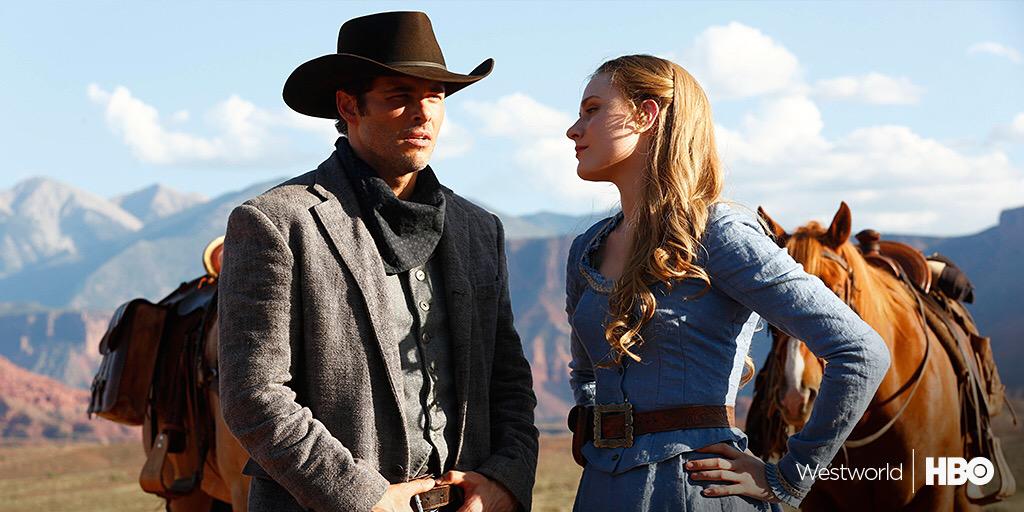

“Westworld” — HBO’s ambitious new effort to update their drama slate — is a flawed, but exciting new hit series that grapples with questions about human nature, consciousness and scientific progress.
Originally a 1973 film written and directed by Michael Crichton, “Westworld” is the story of a futuristic, wild west themed park where guests pay exorbitant amounts of money to live in the park and do whatever they want — whether it’s going on bounty adventures, or sleeping with, shooting at or killing humanoid “hosts.” These seemingly human “hosts” are actually non-sentient robots created by the Westworld staff. They are programmed to be incredibly lifelike, but also to forget the carnage that the park’s guests inflict on them everyday.
Much of the carnage is carried out by the mysterious Man in Black (Ed Harris). He rapes, pillages and murders entire towns in the park, and he has apparently been doing so for 30 years. However, he appears to be getting bored and desires to discover deeper level of the park. What this deeper level consists of remains unclear.
The show’s core conflict is that several of the hosts are becoming increasingly human. They remember fragments of past traumas, hold grudges and some are even able to circumvent their programming and improvise their actions.
This all seems to be leading up to a confrontation between the traumatized hosts and the park’s guests and employees. It is clear that, at some point, the hosts will gain full consciousness. With consciousness comes self-determination, and undoubtedly the hosts will determine that their creators and the guests deserve some payback.
Jonathan Nolan and Lisa Joy are responsible for the direction of “Westworld,” loosely adapting it from Crichton’s movie and not necessarily following the plot, but staying true to the film’s premise.
Many of the themes seen in “Westworld” are similar to those of another famous Michael Crichton work — “Jurassic Park.” Technology, Crichton says, has limits to its usefulness. He tells us that once we start playing god, creating dinosaurs, engineering humans, and doing things we were probably never supposed to do, we will invariably fail.
“Westworld’s” themes run deeper than “Jurassic Park’s”. There is no way to tell who is real and who is a host in the theme park — besides taking out your gun and shooting, which affects the hosts, but not the guests. However, the humanoids often seem much more “human” than the actual humans. They express love, mourning, rage, happiness and above all, anguish. The real humans in the park, with the exception of William (Jimmi Simpson), a mild-mannered and reluctant guest, are all prone to violence, degradation and deviance. It is even hinted at that William — who is so pure that he chooses to adorn a white hat as his outfit — will eventually fall into degeneracy. Clearly, Nolan and Joy are making a statement about the inevitable failing morals of humankind.
“Westworld” is not without its faults. With lines like “You can’t play God without being acquainted with the devil,” the dialogue can be clunky and corny at times. Additionally, the brutal victimization of female androids like Dolores (Evan Rachel Wood) can feel unnecessarily excessive. Nevertheless, “Westworld” is still worth a watch. It remains to be seen how the show will manage to carry on once the humanoid hosts raise hell, but for the time being, “Westworld,” is a show equally provocative as it is intriguing.